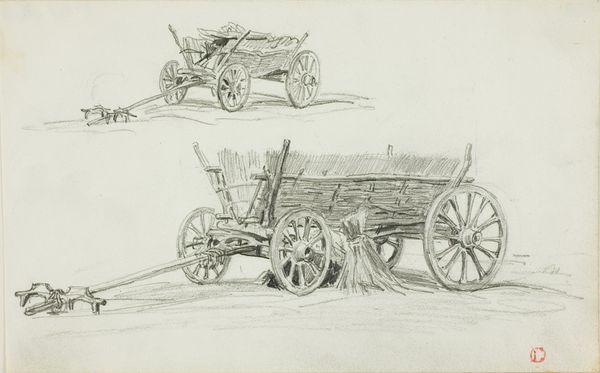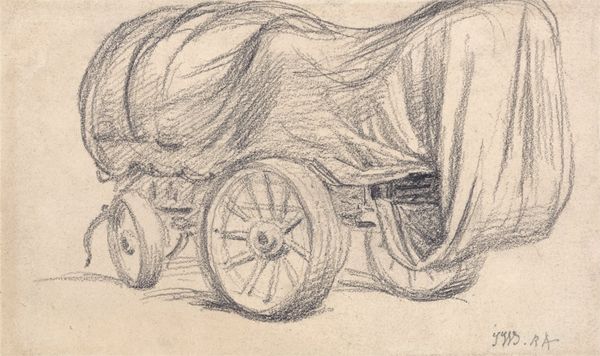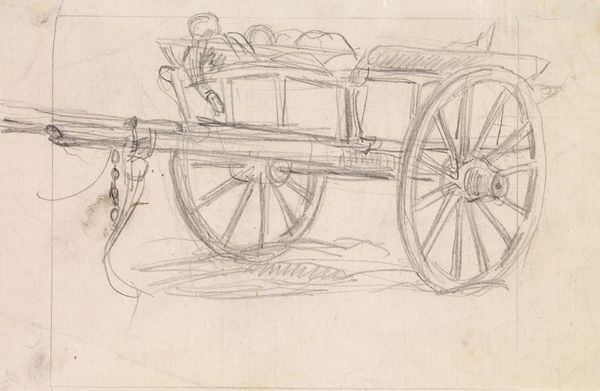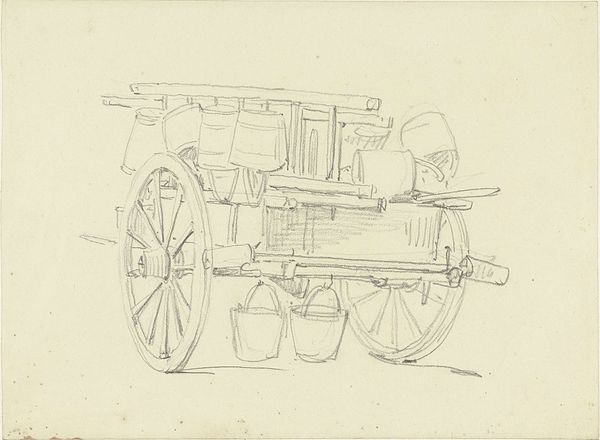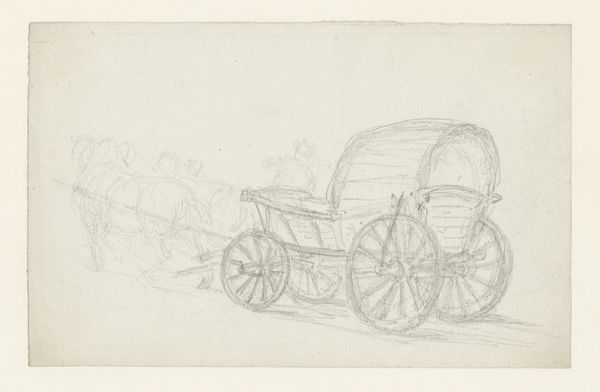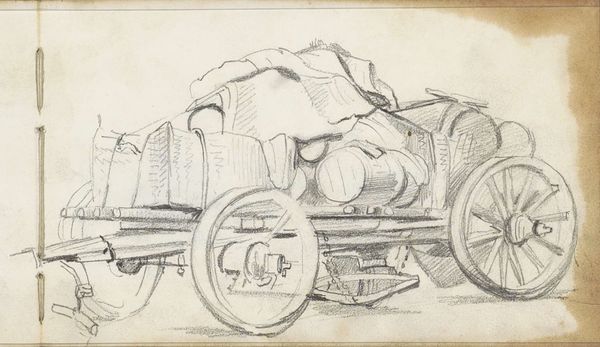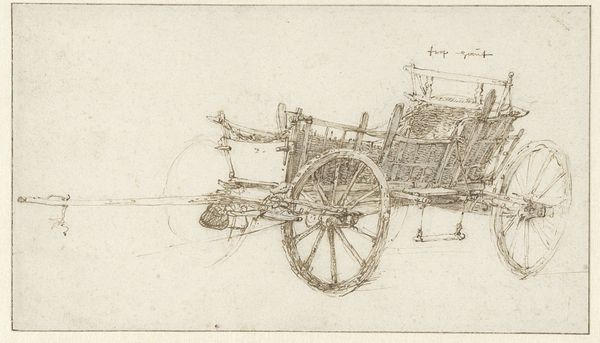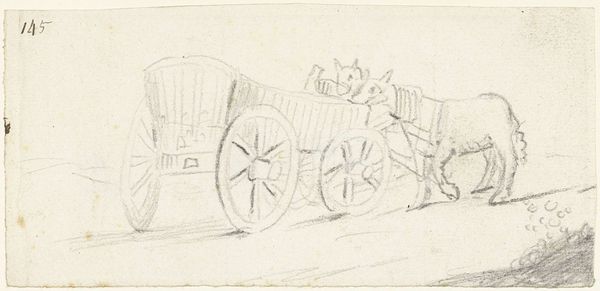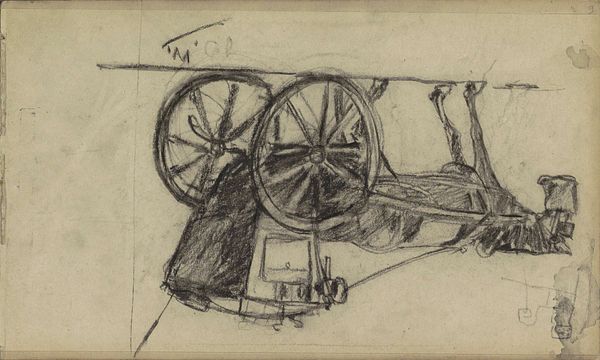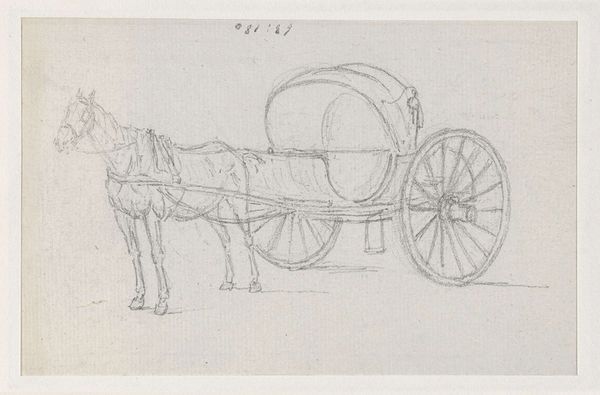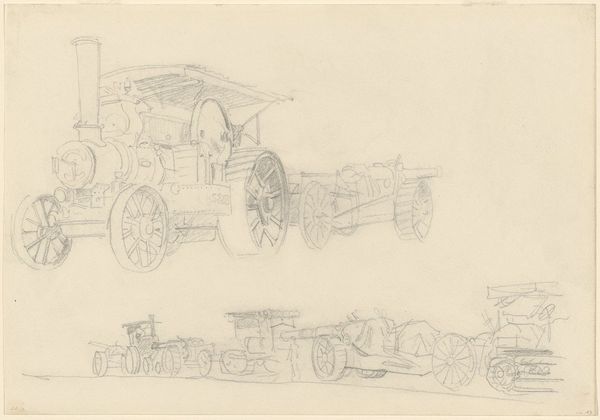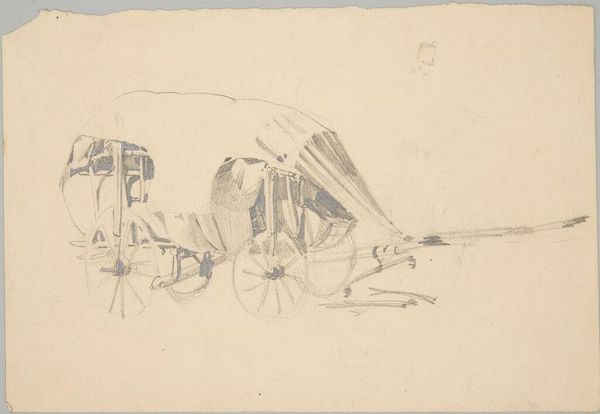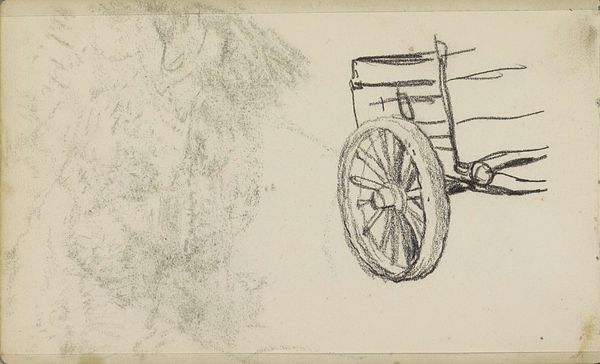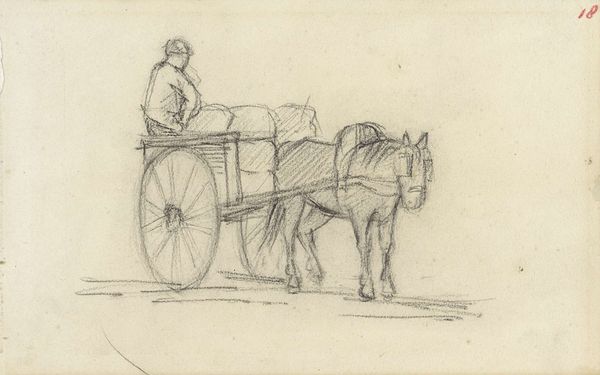
drawing, pencil
#
drawing
#
landscape
#
pencil
#
history-painting
#
modernism
#
realism
Copyright: Public Domain: Artvee
Curator: Looking at this drawing, "Cannon Trailers, France" by John Singer Sargent, created in 1918, what stands out to you initially? Editor: A feeling of heavy stillness. The sketch is spare, but these cannons—they're bulky, cloaked, hinting at latent power and a sense of oppressive machinery. Curator: The pencil medium lends a stark quality, doesn't it? But note how Sargent captures the weight and form with such economy of line. This was, of course, towards the end of the First World War, and he was commissioned as a war artist. The pencil as a medium, was light and allowed quick creation of sketches right in the fields of combat. Editor: I’m immediately drawn to the means of transport. The oversized wheels on these artillery vehicles were new materials that became a motif in that era of industrial war, showcasing production designed for mass violence. Curator: That's right. The wheels could signify technological advancement but what is technologically innovative can carry that double meaning of human suffering and industrialization as power. Are there certain meanings that you see embodied in the vehicles that move those large artillery cannons? Editor: Certainly! One must think about those that were subjected to pulling this heavy machinery as they made their long, muddy and dangerous journeys, but on a different note, even though these engines of destruction are stationary in the drawing, the eye traces across the entire panoramic line and then out the picture frame: destruction awaits! The pencil lines serve this effect really well by adding this sense of incomplete or ‘about to move’ impression. Curator: An apt observation. The trailers have been placed there, as they wait to move. These tools, now still, suggest the looming continuation of history. The artist doesn’t provide a morale verdict, per se, just provides to the observer their power to continue on and perpetuate historical action, but without those engines this reality could never have occurred! Editor: Yes, this connects strongly to the materiality itself. Mass production facilitated the widespread destruction, implicating not just the combatants but the industrial machine behind them. Food for thought! Curator: A valuable perspective—reminding us that objects carry more than just symbolic weight. Thank you for your insightful comments!
Comments
No comments
Be the first to comment and join the conversation on the ultimate creative platform.
